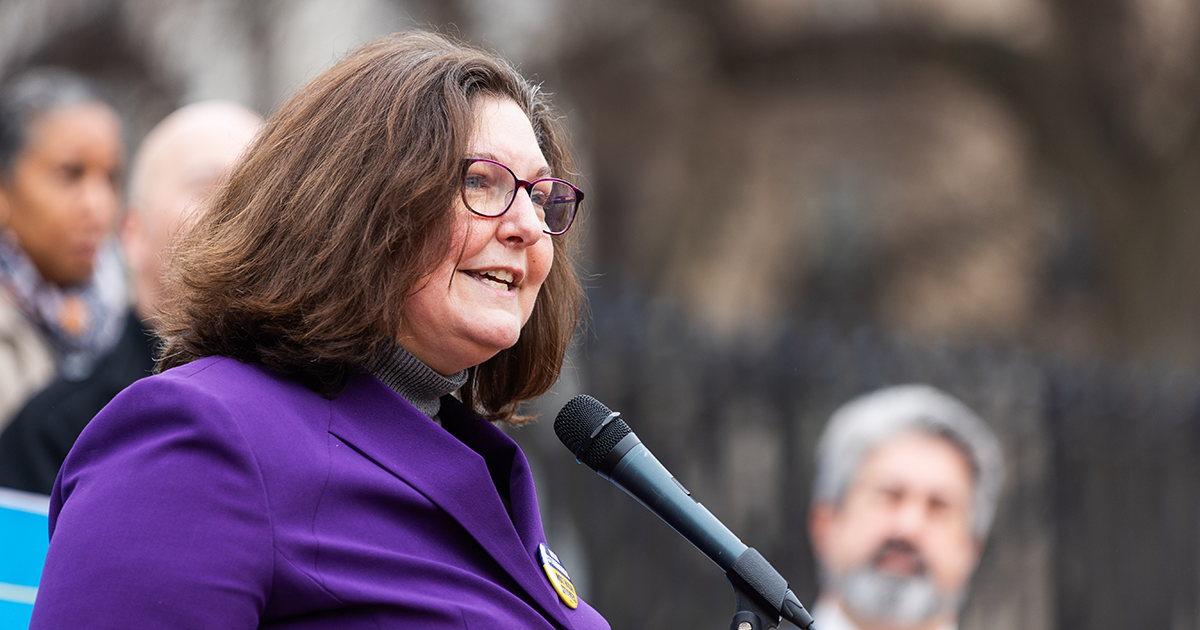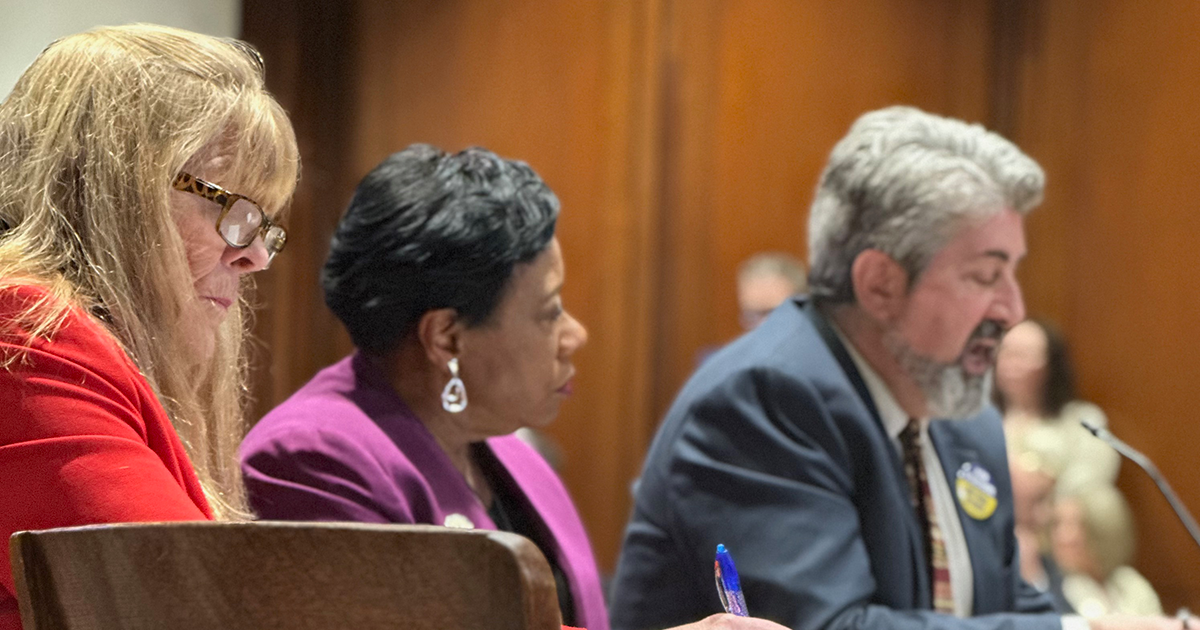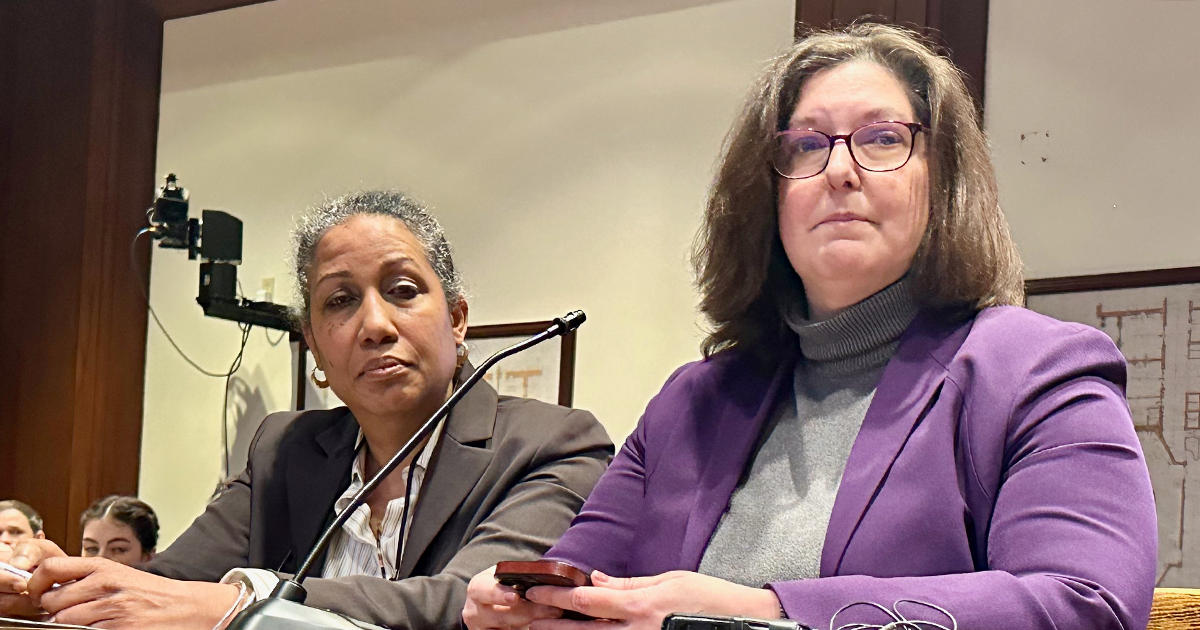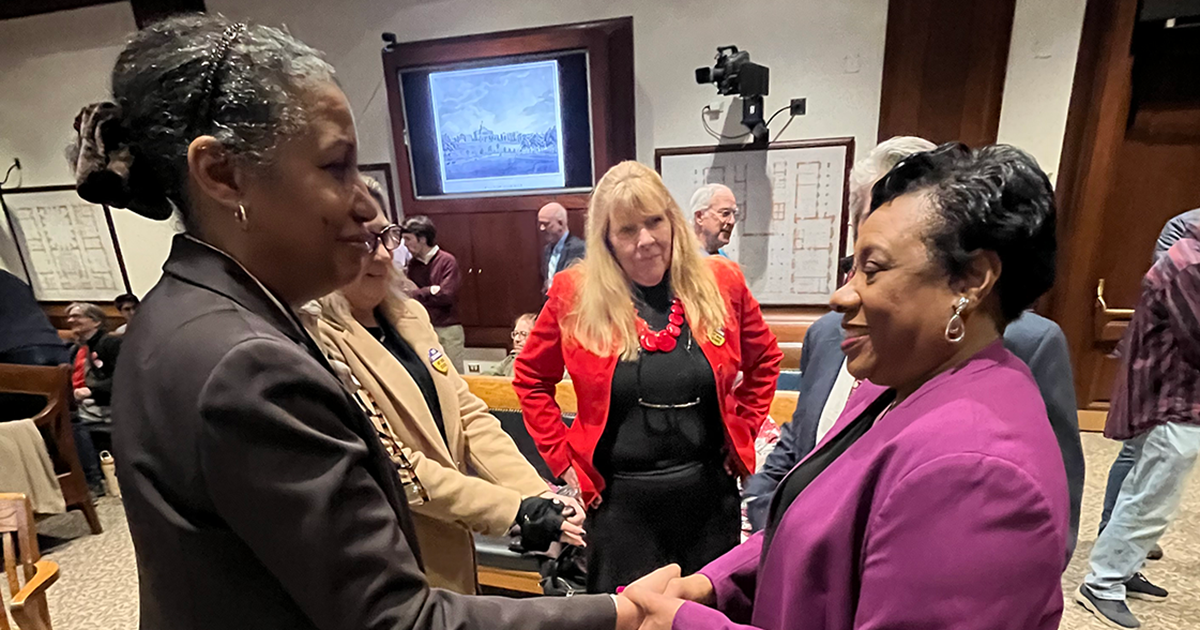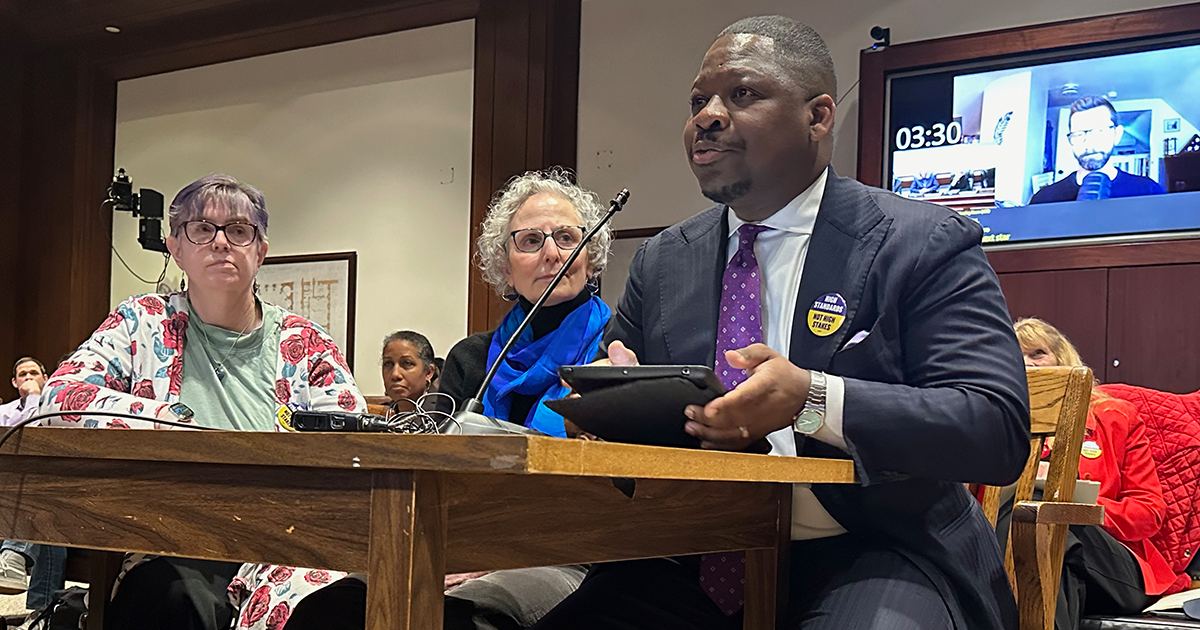Parents, educators and allies take center stage on MTA-backed MCAS ballot initiative
Parents, educators and allies take center stage on MTA-backed MCAS ballot initiative
Parents, educators, MTA leaders and supporters testified before the Special Joint Committee on Initiative Petitions about the union-backed ballot initiative that would replace the MCAS graduation requirement.
Hanover parent Adriana Mason, whose son has autism and is at risk of receiving a certificate of completion rather than a diploma, helped collect over 1,000 signatures along with two other South Shore moms.
“As a mom, watching my child struggle through the MCAS, knowing full well the high-stakes test doesn’t capture his true potential, is heartbreaking,” Mason said. “This ballot question is incredibly personal for us and our community. The stakes couldn’t be higher.”
“As a mom, watching my child struggle through the MCAS, knowing full well the high-stakes test doesn’t capture his true potential, is heartbreaking."
Hanover parent Adriana Mason
Grassroots activism by Massachusetts parents, community members and organizations, students and educators is the reason why more than 135,000 signatures were collected between September and December of 2023 – more than any other ballot initiative campaign this election cycle.
The hearing comes a day after local fifth-grade students protested outside the State House on Sunday against the high school graduation requirement tied to the MCAS tests.
Districts would certify that students have met the state standards through successful completion of coursework. That, speakers testified at the hearing, would be a more accurate measure of student knowledge than the MCAS, while also better preparing students for the complex challenges of college or the workforce.
Rev. Willie Bodrick, senior pastor of the historic Twelfth Baptist Church in Roxbury and a member of the Boston Public Schools Opportunity & Achievement Gaps Task Force, told lawmakers that the COVID-19 pandemic has deepened inequality in public education.
“This single, high-stakes test has become a gatekeeper, one that too often locks out our most vulnerable students – those from Black, brown, low-income communities – and those grappling with language barriers or disabilities,” Bodrick told lawmakers. “And, it is why I have supported the MTA-backed ballot question, as it would immediately change this inequity. This ballot question before us offers a beacon of hope.”
“This ballot question before us offers a beacon of hope."
Rev. Willie Bodrick
Public school educators – including Dani Charbonneau, a Martha’s Vineyard educator and the 2023 Massachusetts Teacher of the Year – testified Monday that the MCAS exam does not prepare high school students for success.
“I wonder how many people debating MCAS here today know what it tests – because it’s a very narrow set of skills in English, math, and some sciences,” Charbonneau testified. “It doesn’t test for emotional intelligence, leadership teamwork or problem-solving skills – all things employers say they are looking for in the workforce.”
“Denying students their high school diplomas simply because they fail to pass a single high-stakes, standardized test is wrong,” Pringle told lawmakers. “And the unjust MCAS tests actively harms students of color, low-income students, English learners and disabled students. That harm can follow students out of the
The MCAS "doesn’t test for emotional intelligence, leadership teamwork or problem-solving skills – all things employers say they are looking for in the workforce."
Dani Charbonneau, 2023 Massachusetts Teacher of the Year
MTA President Max Page told lawmakers that public school educators in Massachusetts take pride in the fact that our state standards are considered the gold standard across the country. These standards are applied across every district in Massachusetts and have contributed to the building nation’s finest public education system, he said.
“MTA members respect and teach to the highest standards. But MTA members deplore the failed experiment of high-stakes testing,” Page added. “We believe we need less high-stakes testing, and more real learning in our schools.”
MTA Vice President Deb McCarthy said it is time to address the enormous disconnect between policy and what is actually being practiced in our schools.
“Students, parents, educators, and community activists are making it clear that it is time to eliminate the high stakes of a test score. It is time to acknowledge that there is a difference between being a good test-taker and mastering the high standards of the Massachusetts state frameworks,” McCarthy testified. “It is time to stop the cycle of harm that is preventing certain students with different learning styles and background experiences from demonstrating the richness and the diversity of their intelligence.”
State lawmakers back the ballot question
Massachusetts legislators have also weighed in, throwing their support behind the MTA-backed ballot initiative to replace the MCAS graduation requirement.
“High-stakes tests like the MCAS exam and the associated accountability measures have undermined our public education system for far too long,” said state Representative Sam Montaño. “Using standardized tests like MCAS is ineffective in assessing and demonstrating real-world mastery of skills. Rather, they are adept at reflecting economic disparities and poverty. Tying the graduation requirement to the MCAS tests has created barriers for students of color and low-income students from earning a high school diploma, which will detrimentally affect their future opportunities and effectively crush their dreams.”
"Fewer and fewer states allow a single, high-stakes test to determine whether or not a student obtains a high school diploma. Let this be the year that Massachusetts rejects this rigid, punitive practice and embraces a much more comprehensive evaluation of student and school excellence,” said state Senator Jo Comerford.
“The tying of high school graduation to the MCAS standardized test is harming our students – especially students with Individualized Education Plans, students learning English as a second language, students of color and students from groups that have been historically marginalized,” said state Senator Liz Miranda. “Passage of this ballot question would allow our teachers to better educate and support the whole student.””
“This ballot question addresses the significant harm done to our students, families, educators and community members from high-stakes testing,” said state Senator Adam Gomez. “Replacing the misuse and overreliance of the MCAS exam as a graduation requirement will ensure that a student’s future is not determined on the basis of a single test.”
